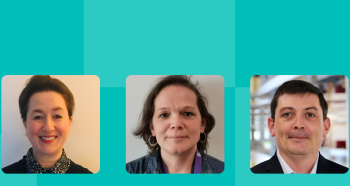Our Cambridge IGCSE™ English (as an Additional Language) coursebook and teacher’s resource are coming in 2022. In the meantime, we’ve been working with our authors to create a series of blogs to support you from first teach.
In this blog, coursebook author Graham Newman looks at ways to help students revise future forms in English.
Talking and writing about future events is a challenging part of learning English, so how can you make this experience fun and helpful for students? As ever, some initial assessment on your part followed by stimulating, active learning and reflection is key.
Here’s a three-stage lesson you can adapt to suit your students. It assumes that students at A2/B1 level have competent understanding of future forms.
Working out what they know
Get them speaking – and use it diagnostically. Start by asking students to talk about future events, perhaps using these prompts:
- What time does school finish tonight?
- What are you doing after school?
- What career would you like to do when you leave school?
- What sort of things would you like to do over the next 20 years?
Less able students may benefit from some sentence frames or examples to help them with this activity, but most students will be able to use future forms with some accuracy. Listen out for incorrect usage at this point and use it to inform your explanation before the next task.
Recapping future forms
You can make grammar revision fun by getting students out of their seats. On each wall of your room place large pieces of paper labelled with one of these headings: ‘Present simple’, ‘Present continuous’, ‘Going to + infinitive’, and ‘Will + infinitive’. Give students five minutes to visit each piece of paper and write a sentence using that particular form. The process of writing (rather than speaking) in these forms will be a challenge, but one that is key to revealing what students can and can’t do at this point in their studies.
Depending on students’ prior knowledge, you may need to give some examples before they start. For less able students, you can support them by giving pre-written sentences that they can place under the correct headings. Challenge your more able students to write several sentences on each piece of paper or give examples of other ways to express the future. You might also invite them to act as mentors by taking on the role of teaching assistants and helping fellow students as they write.
Reflecting
Once the novelty of moving round the classroom has settled, it’s important that students reflect on where they are on their learning journey. Take time to look at each piece of paper, asking students to explain what they found challenging and why. Ask students to identify the correct and incorrect forms used and what areas they would like to revisit in future lessons.
As you help rephrase students’ sentences, show them how future forms are determined by function, i.e. definite, planned events can be expressed in present simple (‘The shows begins at 7 pm’), decisions that have been made use ‘going to’ (‘I am going to the show tonight’) and so on. You can find a useful reminder about these and other ways to express the future on the Cambridge Dictionary website.
Students always enjoy active approaches to grammar revision, but the ‘quieter’ activity of sustaining an individually-written paragraph using future forms correctly is the ultimate aim. That may seem somehow less exciting, but it needn’t be. In fact, writing about hopes, aspirations and future dreams is the very stuff that inspires young people. Next time, we will explore how themes and topics in the new course can delivered in a way that not only helps students improve their English, but also allows them to express ideas and views about the world around them.
Find out more about our brand new Cambridge IGCSE™ English (as an Additional Language) series today.
Graham Newman is the author of our upcoming Cambridge IGCSE™ English (as an Additional Language) coursebook. He is Head of English in a UK college.





